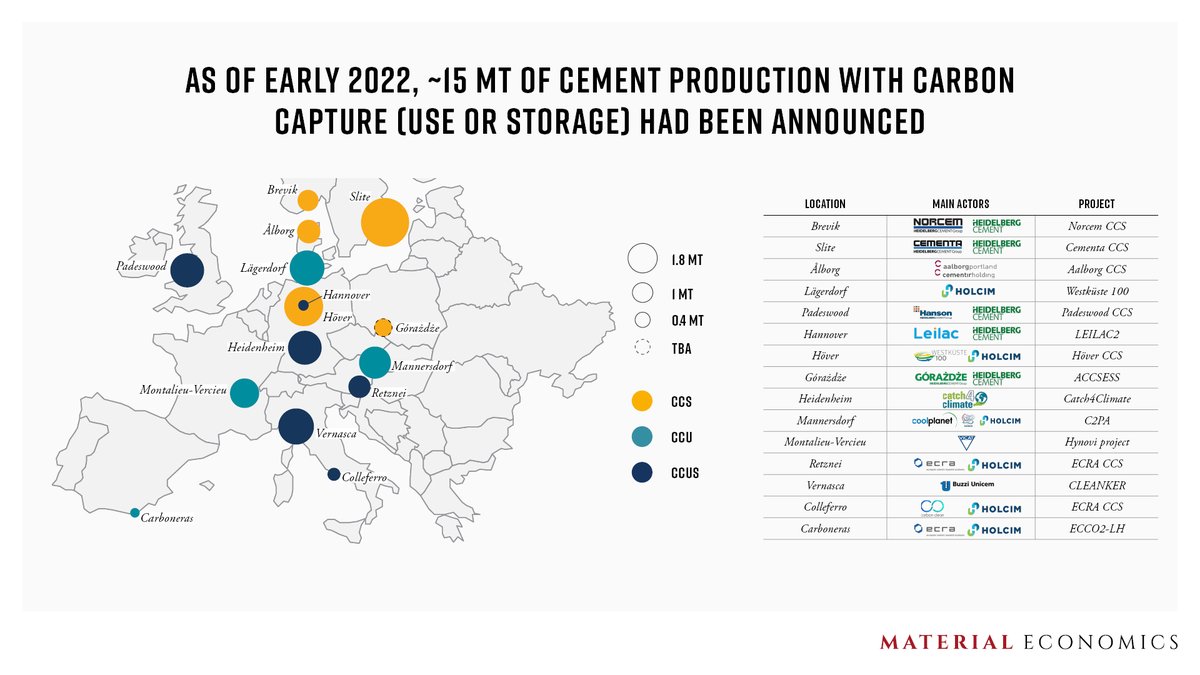
Decarbonising industry is critical to EU climate targets and to our economic competitiveness and autonomy. Our new report shows exciting momentum in industrial #cleantech, but also critical policy gaps: materialeconomics.com/publications/s… (1/8) 

We found 70+ projects already in the pipeline across Europe, using breakthrough technologies with the potential to sharply reduce industrial GHG emissions. (2/8) 

Just 5 of these breakthrough technologies could cut CO2 emissions from steel, chemicals and cement production by up to 70%, bringing those industries much closer to #netzero. (3/8) 

Europe's heavy industries have a chance to dominate the fast-growing market for #greenmaterials, which we estimate could grow to 100 billion USD by 2030, based on @sciencetargets pledges alone (4/8) 

From Spain, to Sweden, to Romania, EU steelmakers are pioneering #cleantech solutions. Once scaled up, breakthrough technologies like H-DRI and scrap-based production could meet our need for #greensteel. (5/8) 

Industrial innovators across Europe have plans to recycle plastics into high-value chemicals, reducing waste & GHGs from plastics that are now landfilled or burnt. (6/8) 

Decarbonising cement production is also crucial to achieving Europe's #netzero commitment. We spotlight pioneering CCS/CCU projects as well as novel cement & concrete formulations. (7/8) 

All in all, this is an extraordinary opportunity for Europe, but only if the right policy & market conditions are put in place as soon as possible. The 2020s must be the decade of action. We identify 5 key areas: materialeconomics.com/publications/s… (8/8) 

• • •
Missing some Tweet in this thread? You can try to
force a refresh



